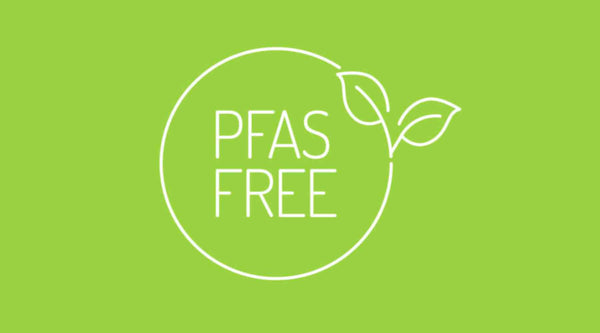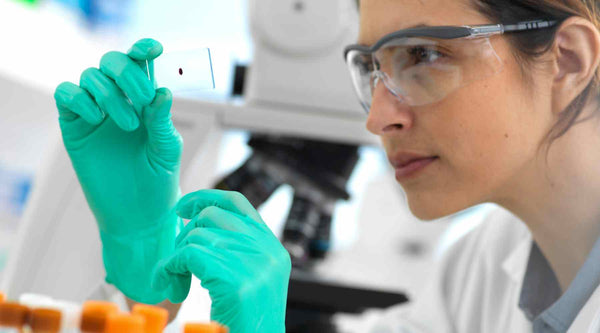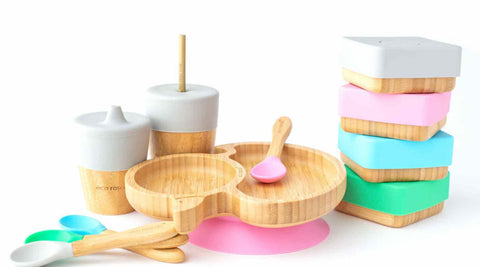eco rascals was founded by two Mums on a mission to create safe and non-toxic tableware for our own children. It was an incredible bonus to be able to share our creations with our local community, friends and families. When we started out at the end of 2018, we had no idea we'd end up growing to be stocked in multiple countries and with retail superstars such as John Lewis and Mamas and Papas.
Things we considered before we launched our first product:
🙅🏼♀️ No Melamine - Just 100% natural bamboo
🙅🏼♀️ No Formaldehyde in our binding agent
🙅🏼♀️ No Virgin Cardboard for our packaging
🙅🏼♀️ No Plastic Window in our packaging
🙅🏼♀️ No petroleum based ink on our packaging
🙅🏼♀️ No PFAS on our bamboo coating

What Are PFAS?
PFAS, or perfluoroalkyl and polyfluoroalkyl substances, are a group of man-made chemicals that have been used since the 1940s in a variety of applications. Commonly found in products that need to resist heat, oil, stains, grease, and water, these chemicals have been dubbed "forever chemicals" due to their persistent nature; they do not break down and can accumulate in the environment and human body.
PFAS are commonly found in Non-Stick Pans, Water-Proof Clothing, Cosmetics, Food Packaging and many other household items.
The Dangers of PFAS
Research has increasingly shown that exposure to certain levels of PFAS can be detrimental to human health. Risks include decreased fertility, developmental issues such as low birth weight and accelerated puberty, increased cholesterol levels, obesity, and heightened risks of certain cancers like prostate, kidney, and testicular cancers. These findings have led to growing concerns and calls for regulatory actions across the globe.
Europe Leads the Way
On February 7, 2023, the ECHA published a groundbreaking proposal to restrict the use of PFAS across the European Union—a testament to Europe’s proactive stance on environmental health and safety. The proposal, submitted by Denmark, Germany, the Netherlands, Norway, and Sweden, is set to be one of the most comprehensive bans on these chemicals, covering all uses with very few exceptions.
The proposal outlines two potential pathways: a complete and immediate ban on all PFAS within 18 months of adoption, or a phased approach, allowing certain applications additional time (between 5 to 12 years) to find safer alternatives. Importantly for those of us in the food industry, the proposal makes it clear that no food contact materials (FCM) applications will receive exemptions, ensuring that products coming into direct contact with our food are free from these harmful substances.
eco rascals’ Commitment
At eco rascals, we pride ourselves on ensuring that our products are completely free from PFAS. We understand that our customers care deeply about the safety and sustainability of the products they use in their daily lives, particularly when it comes to their children.
This proposed regulation by the ECHA aligns with our mission to provide safe, eco-friendly tableware that does not compromise the health of our planet or our bodies. As Europe continues to lead the way in banning harmful chemicals, we are proud to support and uphold these standards, ensuring our products reflect the highest criteria of environmental and health safety.
We do this by educating our manufacturers and working with SGS, the world's leading testing, inspection and certification company who are recognised as the global benchmark for sustainability, quality and integrity. Unlike other brands, we have not had our products recalled.

How to reduce PFAS in your daily life?
Many of our customers are actively looking for ways to reduce their child's exposure to toxic chemicals. Totally avoiding PFAS will be difficult as it can be found in many household items from door frame varnish, stain-resistant furniture and even carpets. There are however steps you can do to reduce exposure.
1. Avoid Non-Stick Pans. Opt for stainless steel, cast iron, or ceramic cookware.
2. Identify if your supermarket or wherever you source your food from are actively trying to reduce PFAS in food packaging. This should be fairly searchable.
3. Filter your tap water - Look for filters that specifically mention PFAS removal, such as activated carbon filters.
4. Check your Cleaning Products and be careful for 'Greenwashing'. If in doubt, look to make your own cleaning products with vinegar, water, bicarbonate soda etc.
5. Prioritise fresh and whole foods that aren't processed or packaged.
6. Minimise fast food and takeaways.
7. Wash your hands frequently.





Comments (0)
There are no comments for this article. Be the first one to leave a message!